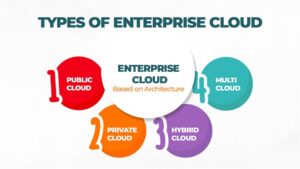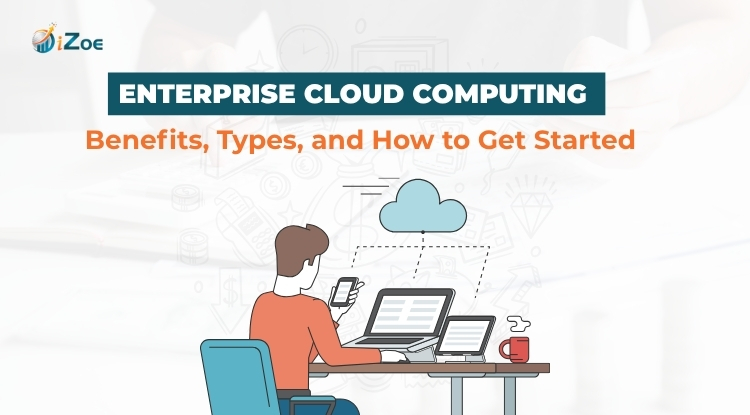In today’s rapidly evolving digital landscape, cloud computing has moved beyond being a luxury—it’s now essential. From healthcare and finance to retail and government, businesses everywhere are embracing smarter, more scalable IT solutions. Leading this transformation is the Enterprise Cloud—a modern approach that blends the flexibility of the public cloud with the security and control of private systems.
Whether you’re a fast-growing startup or a large organization modernizing legacy systems, the enterprise cloud strikes the perfect balance. But what exactly does this model involve? What advantages does it offer? And how do services like VPS hosting and GPU cloud fit into this ecosystem?
Let’s break it down.
What Is Enterprise Cloud?
Enterprise Cloud refers to a hybrid IT model that brings together the best of both public and private cloud infrastructures. It offers the speed, flexibility, and cost benefits of public cloud services, combined with the control, security, and customization of private environments.
This model is particularly useful for businesses that need to handle multiple workloads across various platforms without sacrificing governance or performance. Enterprise cloud environments make it easier to centralize operations, boost efficiency, and meet compliance requirements without compromising scalability.
In simple terms, enterprise cloud is designed to deliver both the agility of modern cloud services and the governance of traditional IT systems.
The Surge of Cloud Adoption: Why It’s Crucial Now
The adoption of cloud computing continues to surge. According to Gartner, global spending on public cloud services is expected to hit $679 billion in 2024, up from $563 billion in 2023—and is forecasted to surpass $1 trillion by 2027.
Several factors are driving this momentum:
- The acceleration of digital transformation across industries
- The growing need for robust remote work solutions
- The rise of AI, machine learning, and data analytics
Increasing cybersecurity challenges and the demand for reliable disaster recovery
A 2023 report by Deloitte also revealed that more than 36% of commercial real estate executives are prioritizing cloud investments—placing it among the top digital technologies globally.
Key Business Benefits of Enterprise Cloud
1. Cost Optimization
Unlike traditional IT setups that require large upfront investments, enterprise cloud platforms allow businesses to pay only for the resources they use. This significantly reduces costs associated with hardware, maintenance, and IT staff.
2. Flexible Scaling
Need more computing power or storage during peak periods? Enterprise cloud lets you scale up or down on demand—so you’re always aligned with business needs without overcommitting resources.
3. Enhanced Security & Compliance
Top cloud providers implement enterprise-grade security features such as end-to-end encryption, role-based access, and compliance with international standards like ISO, HIPAA, and GDPR.
4. Anywhere Access & Collaboration
Cloud-based environments enable teams to access systems from any location, share data in real time, and collaborate securely—making it ideal for hybrid or remote-first organizations.
5. Reliable Disaster Recovery
Whether it’s a power outage, cyberattack, or natural disaster, enterprise cloud platforms come with built-in backup and recovery tools to minimize data loss and downtime.
6. Automatic Updates
With managed cloud services, your systems stay updated automatically—giving you access to the latest features, bug fixes, and security enhancements without lifting a finger.
7. Support for AI, Big Data & GPUs
Enterprise cloud is built to handle high-performance computing. From GPU cloud for AI and deep learning to advanced analytics workloads, it offers the resources required for data-heavy operations.
Types of Cloud Solutions: Choosing What Fits Your Business

Every business has different operational needs, and the right cloud architecture depends on your goals, compliance requirements, and scalability needs. Here are the main cloud models:
Types of Enterprise Cloud Architecture
| Cloud Model | Description | Best For |
| Private Cloud | Cloud infrastructure used exclusively by one organization; high control and security. | Finance, healthcare, government, or highly regulated industries. |
| Public Cloud | Shared cloud services offered by providers like AWS, Azure, and GCP. | Startups, SaaS businesses, rapid scale-ups. |
| Hybrid Cloud | Combination of public and private clouds for workload flexibility. | Businesses transitioning from legacy systems. |
| Multi-Cloud | Use of multiple cloud providers for different tasks or regions. | Enterprises aiming to avoid vendor lock-in and enhance resilience. |
How Enterprise Cloud Is Different
While each cloud model has its strengths, enterprise cloud stands out by integrating the features of all these environments into one centralized, streamlined solution. It empowers organizations with agility, cost savings, and security—without forcing them to choose one approach over another.
Unlike standalone public or private models, enterprise cloud allows businesses to run different workloads where they make the most sense—whether it’s deploying sensitive applications in a private setting or scaling globally via a public platform.
How Izoe Helps: Customized Enterprise Cloud Solutions
At Izoe, we empower businesses to embrace cloud technology with confidence. Whether you’re just beginning your digital transformation or scaling an already cloud-native infrastructure, we make the process simple, secure, and cost-effective.
We provide custom enterprise cloud solutions tailored to your business needs across industry-leading platforms:
1.Amazon Web Services (AWS) – Ideal for global scalability, elasticity, and on-demand resources.
2. Microsoft Azure – Perfect for organizations already using Microsoft products like Office 365, Teams, and Dynamics.
3. Google Cloud Platform (GCP) – A powerful choice for analytics, AI, machine learning, and real-time data operations.
We also offer high-performance VPS hosting for businesses that require isolated virtual environments, as well as GPU cloud solutions for companies running AI, deep learning, and high-compute workloads.
Whether it’s optimizing cloud spend, ensuring secure migration, or integrating ERP tools like TallyPrime or Odoo, Izoe delivers enterprise-grade solutions that scale with your ambitions.
Final Thoughts
The future of business is in the cloud—and enterprise cloud is the cornerstone of that future. As technologies like automation, artificial intelligence, and big data analytics become integral to operations, businesses need IT infrastructure that can grow, adapt, and stay secure.
By adopting enterprise cloud, VPS hosting, and GPU cloud solutions, your business can remain agile, resilient, and ready to tackle whatever challenges lie ahead.

